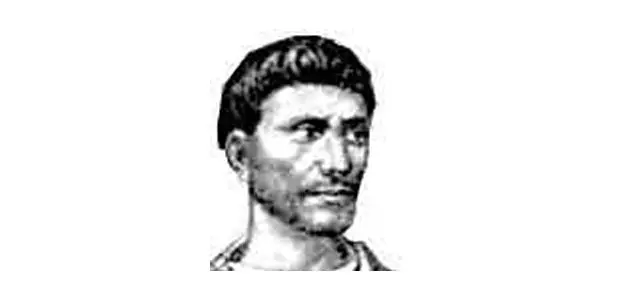
Diophantus was an Alexandrian Greek mathematician, born somewhere between 200 and 214 BC. Alexandria was the center of Greek culture and knowledge and Diophantus belonged to the ‘Silver Age’ of Alexandria. His life story is not known in detail however we do have some dates acquired from a mathematical puzzle known as ‘Diophantus’s Riddle’. He got married when he was 33, had a son who lived for 42 years and Diophantus’s age which according to the riddle was 84 when he died. While his personal life remains secluded his works in mathematics is recorded in ‘Arithmetika’ which originally had thirteen books out of which we only have six. The information from these books tell us that Diophantus studied from Babylonian teachers as his works are inspired from Greek and Babylonian observes.
Contribution to Mathematics
‘Arithmetika’ a major work of Diophantus, is considered to be the most noticeable and influential work done on algebra in Greek history. His style was very different; he never used general methods in working out a problem. A method used for one problem could not be used to solve even another very similar problem. Diophantus wrote many books but unfortunately only a few lasted. He did a lot of work in algebra, solving equations in terms of integers. Some of his equations resulted in more than one answer possibility. There are now called ‘Diophantine’ or ‘Indeterminate’. It was none other than Diophantus who started the use of a symbol to specify the unidentified quantities in his equations. His style of algebra is known as the ‘syncopated’ style of algebraic writing, in which he represented polynomials as one unknown. Before Diophantus’s use of symbolism equations were written out completely. Mathematical historian Kurt Vogel says regarding Diophantus’s symbolism:
‘The symbolism that Diophantus introduced for the first time, and undoubtedly devised himself, provided a short and readily comprehensible means of expressing an equation… Since an abbreviation is also employed for the word ‘equals,’ Diophantus took a fundamental step from verbal algebra towards symbolic algebra.’
He also used fractions as numbers. His equations are the epitome of the number theory. Due to this he is also known as the ‘Father of Algebra’. There are discrepancies in his work such as the lack of the required notation in expression of more general methods. This isolated technique of Diophantus restricted his work to only specific problems. He also did not have a symbol for the general number n.
It is said that Diophantus wrote on polygonal numbers. There are some remains of a book with the use of these numbers. ‘Preliminaries to the Geometric Elements’ was attributed to the ‘Hero of Alexandria’ but a recent research by Wilbur Knorr suggests that it was in fact Diophantus who was the author of this book.
Death
Diophantus had his share of immense influence in mathematics especially algebra that later led to major advances in the subject. Most of work was conserved by the Arabs. His works are also translated in Latin later in the 16th century. The Diophantine equations are named after him. He died in 284 AD.